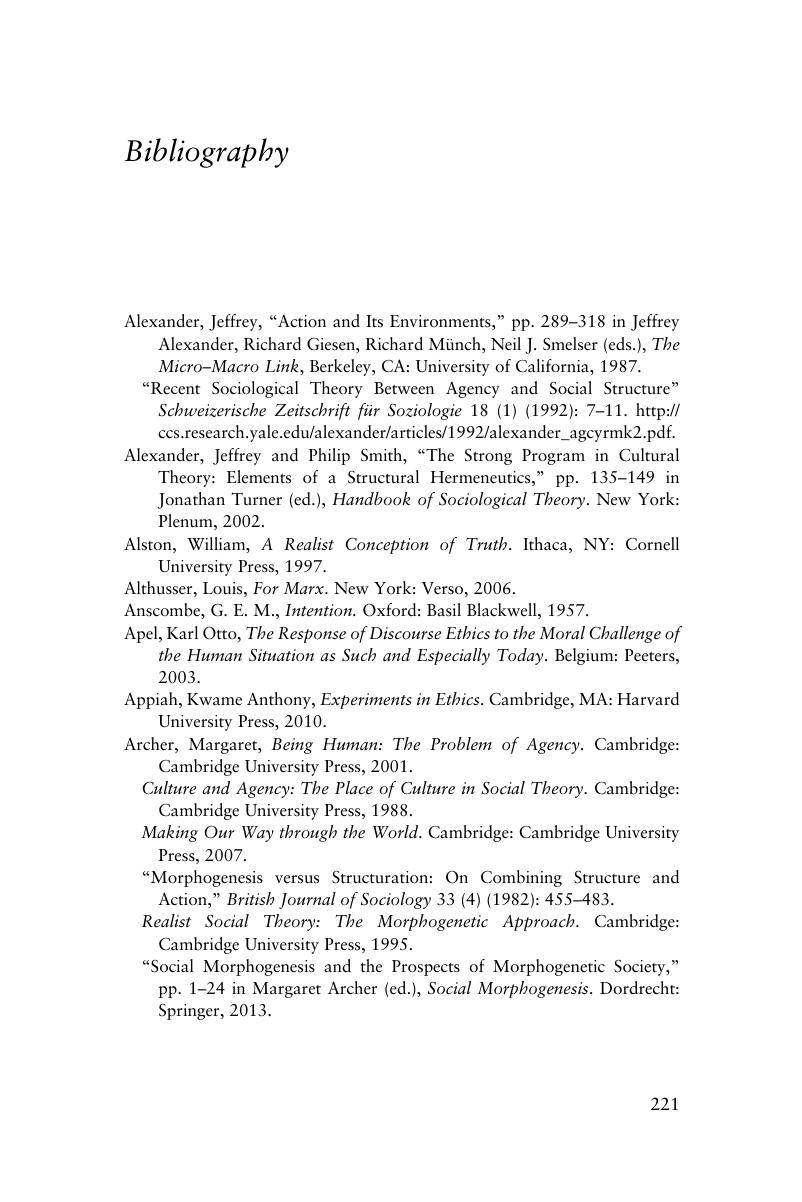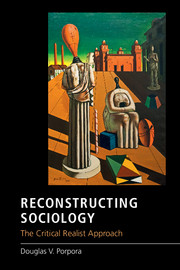Book contents
- Frontmatter
- Dedication
- Contents
- Acknowledgments
- 1 Seven myths of American sociology
- 2 Do realists run regressions?
- 3 What is truth?
- 4 Whatever happened to social structure?
- 5 Are we not men – or, rather, persons?
- 6 What and where is culture?
- 7 Do we need critical realism?
- 8 So what do we do with it?
- Bibliography
- Index
- References
Bibliography
Published online by Cambridge University Press: 05 April 2016
- Frontmatter
- Dedication
- Contents
- Acknowledgments
- 1 Seven myths of American sociology
- 2 Do realists run regressions?
- 3 What is truth?
- 4 Whatever happened to social structure?
- 5 Are we not men – or, rather, persons?
- 6 What and where is culture?
- 7 Do we need critical realism?
- 8 So what do we do with it?
- Bibliography
- Index
- References
Summary

Information
- Type
- Chapter
- Information
- Reconstructing SociologyThe Critical Realist Approach, pp. 221 - 236Publisher: Cambridge University PressPrint publication year: 2015
